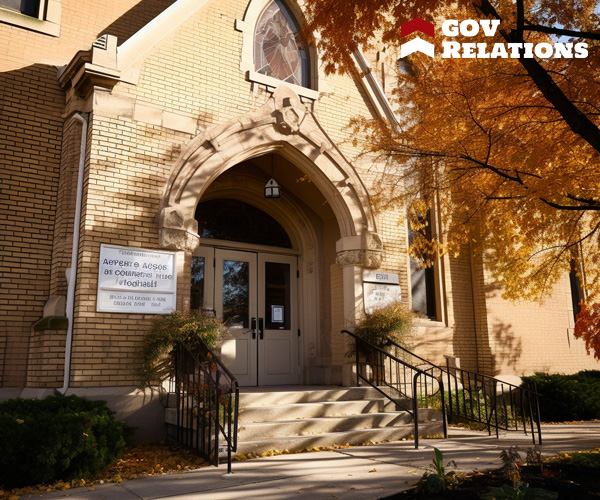Catholic Charities USA is a major affordable housing provider with over 35,000 units in the U.S.[1]
A significant national shortage of affordable housing persists despite ongoing efforts.[1]
Churches are repurposing surplus properties into housing for vulnerable populations, including seniors and those needing substance-use recovery.[1]
In 2020, 580,466 Americans were homeless, a 2.2% increase from 2019.[2]
A huge mismatch between supply and demand made paying rent virtually impossible for low-income families in the first months of 2023, as many parts of the country saw double-digit rent increases.[3]
Cities in the U.S. are building bigger apartments, and data shows that rent for larger units has risen the most in the last couple of years.[4]
Getting evicted is a very painful experience. Unfortunately, most Americans struggle to pay their monthly costs, particularly raising a family. If this happens to you due to financial instability, many resources are available to help you; some churches in your area may have rescued many families by assisting them in paying rent and utilities.
Catholic Charities USA is one of the largest affordable housing providers in the U.S.[1] You may want assistance from a local church to pay your electric bills or only require food assistance. You may require assistance with school supplies for your children. Whatever your needs are, there's a good chance you'll be able to obtain help through a church or a mix of church programs.
Thousands of churches in your area that help with rent are willing to help when given the opportunity. They not only help low-income families in the parish, but they also try to help strangers.
What To Know About Rent In The U.S. In 2023
Homelessness and Housing Shortage
The U.S. faces a growing homelessness crisis, with over 580,000 people affected in 2020, marking a 2.2% increase from 2019. This rise is partly due to job losses and delays in benefits. Despite efforts, a significant shortage of affordable housing persists, adding strain to shelters and housing systems.[1][2]
Rising Rent Prices
Rental rates have surged to unprecedented levels, with many regions experiencing double-digit increases in early 2023. This spike in rent, coupled with a supply-demand mismatch, has made housing unaffordable for many, especially low-income families.[3]
Changing Rental Market Dynamics
Post-pandemic, there's a higher demand for larger rental units as people seek spaces that can double as home offices. This trend has led to an increase in rent for larger apartments, impacting the overall rental market.[4]
Impact on Renters and Investors
Many renters have struggled to keep up with payments, risking eviction and further intensifying the competitive rental market. Conversely, real estate investors are likely to see increased returns due to rising property values and rental rates. This trend offers little relief to those in need of affordable housing.
Recent Statistics and Findings on Housing and Rental Assistance in the US:
- Rising Housing Costs: As of 2023, the US housing market has seen a significant increase in rental prices, impacting affordability for low-income families.[5]
- Homelessness Concerns: Recent data indicates a steady rise in homelessness, with over 580,000 individuals affected nationwide.[6]
- Government Aid: Federal and state rental assistance programs have been expanded, yet demand continues to outpace available resources.[7]
- Church Involvement: Churches and faith-based organizations are increasingly stepping in to provide emergency housing and rent assistance, filling gaps left by governmental programs.[8]
- Affordable Housing Shortage: The US faces a substantial shortage of affordable housing units, exacerbating the housing crisis for vulnerable populations.[9]
Fast Facts
Catholic Charities USA is a major affordable housing provider, with over 35,000 units in the U.S.
How Can Churches Help With Rent Assistance and Other Utilities?

The Church is the closest and most reliable sanctuary for people who can't afford to pay their rent, as the government gives most churches funds so that the congregation can provide shelter, meals, clothes, and money for disadvantaged individuals and poor and needy families.
Churches are repurposing surplus properties into housing for vulnerable populations, including seniors and those needing substance-use recovery.[1] Churches that help with rent can make a big difference for struggling people who need a place to live. Many local and national churches and faith-based groups serve low-income families, the elderly, the disabled, and children in the community by providing the following services:
Immigrant Assistance
Current stories continue to highlight the terrible circumstances of many people in other nations, as well as the necessity to reach out to individuals who have sought security in the United States. Many Christians and churches are working to find opportunities to reach out to immigrants and refugees on a local, national, and global scale.
Churches typically greet refugees at the airport, provide welcome packages for their homes, and set up basic English-based religious education programs. They also distribute materials to assist the community in discussing and teaching immigration concerns in the church in order to foster a safe, harmonious, and helpful environment for everybody.
Parenting Education
Most churches believe that the family is the first community and the most fundamental way that people are formed to act in the world. One of the effects of the 2020 pandemic's imprint on living in the United States was a rediscovery of the family and the home's centrality and relevance in our culture. Education, employment, and religious practice all returned fairly immediately.
As a result, many churches began to provide assistance to parents who require assistance in caring for their children and families. This includes both online and in-person parenting classes, events and activities for parent-child interaction, and numerous opportunities for parent involvement in the community.
Utility Bills
In the past years, around 40% of American households are struggling to pay for basic necessities such as rent or food. With this in mind, it's no surprise that many individuals and households are looking for churches that help with bills, particularly low-income families in need of emergency utility assistance.
For decades, churches have assisted individuals and less fortunate families with many types of payment obligations. If you have no one else to turn to, it's a good idea to contact some local churches that offer utility assistance. There's a huge number of churches that help so there's no need to worry about finding one.
Food Pantries
Food pantries will typically accept anyone who needs assistance with feeding their family, regardless of whether or not these people are part of the congregation. Since some food pantries operate on a first-come, first-served basis, knowing the distribution schedule's days and hours could be helpful. Churches with food pantries
Many food pantries have eligibility requirements. Some food pantries may require families to complete income verification forms, including household size, monthly net or gross income, and proof of address.
Family Counseling
Counselors at some institutes provide support and instruction to church leaders and parishioners through a variety of conferences and workshops on family-related themes. These often include a repository of resources for religious institutions to use in caring for their congregation's members.
Some counseling offices even offer play therapy to families with children, allowing participants to express themselves in their own way. While the counselor assists children in coping with challenging emotions and circumstances, these programs can also help establish a safe family environment that fosters growth and healing.
Fast Facts
Catholic churches are the world's largest non-government supplier of health care services.
Electricity Bills
Some churches can also give a reasonable amount of money for utility bills to families that are in a deep financial crisis, such as those who are unable to pay even for their electricity bills. However, the amount is usually not particularly large because most churches do not have a lot of funding.
Nonetheless, many churches and faith-based organizations are happy to extend charity to those in need so it's not difficult to reach out and ask for this kind of aid.
Rent Assistance
Several churches are well-known for providing short-term rental assistance services to people in need. Most churches provide financial support by accepting generous donations from members of their congregations or communities, as well as grants from enterprises or others in the community looking to make a difference.
Whether you're suffering from a potential house eviction or an unexpected job loss, a church is a good place to turn to for aid. Note that different churches have different requirements for applying for rental aid. Still, in general, they will assist most individuals who have exhausted all other options, especially in places like Indiana and Atlanta.
Affordable Medical Care
Catholic churches are the world's largest non-government supplier of health care services, owing to their theological obligation to heal the sick. In the U.S., many Catholic churches provide medical care as simple as donating money directly to families in need, frequently accompanied by handwritten prayers or notes of encouragement.
These churches cannot guarantee that members' medical expenses and medication bills will be reimbursed because they are not insurance companies, but they do what they can to help.
Churches To Contact For Low-Income Families

For immediate assistance with bills or emergencies, these churches offer a range of support services:
Love Inc.
Love Inc. extends a compassionate hand to those in need, offering a spectrum of services from food and clothing to rent and utility assistance. Their personalized approach ensures tailored solutions for each individual's unique circumstances.
- Food Assistance: Operates food pantries for immediate food supply.
- Clothing and Household Items: Provides clothing and essential household items through thrift stores.
- Rent and Utility Assistance: Offers financial aid for rent and utility bills.
- House Maintenance: Helps with minor home repairs and maintenance.
- Personalized Assistance Plans: Develop custom plans for each applicant after initial assessment.
The Church of Jesus Christ of Latter-Day Saints
This church provides comprehensive support, including free food distribution and financial aid for essential expenses. Their approach is inclusive, offering counseling and assistance to all community members in need, regardless of their background.
- Food Distribution: Access to "Bishop Storehouses" for free food.
- Financial Aid: Provides financial assistance for rent and other critical expenses.
- Counseling and Support: Offers counseling services and support for various needs.
Episcopal Church
The Episcopal Church is dedicated to serving communities through various programs, including financial aid for emergencies, medical assistance, and necessities like food and clothing, ensuring holistic support for those in challenging situations.
- Financial Emergencies: Assists with urgent financial needs, including rent and utilities.
- Medical Assistance: Provides aid for medical expenses and healthcare.
- Clothing Closets: Offers clothing for those in need.
- Gas Vouchers: Supports work-related transportation with gas vouchers.
- Homeless Shelters: Operates shelters for the homeless.
- Food Banks and Soup Kitchens: Provides food assistance through banks and kitchens.
Lutheran Social Services
Lutheran Social Services focuses on immediate aid, particularly in rent and bill assistance, collaborating with government and other organizations to provide a safety net for those facing sudden financial hardships or housing instability.
- Rent Assistance: Immediate help with rent payments.
- Food and Shelter: Collaborates for food provision and temporary lodging.
- Bill Assistance: Aids in paying utility and other essential bills.
- Government Collaboration: Works with the government for comprehensive support.
Salvation Army
The Salvation Army is a beacon of hope, offering extensive services ranging from financial assistance and clothing provision to specialized support for vulnerable groups. Their commitment to emergency relief demonstrates their dedication to community welfare.
- Financial Assistance: Offers aid for rent, utilities, and other necessities.
- Clothing and Home Necessities: Provides clothing and essential home items.
- Support Services: Special services for immigrants, seniors, and disabled individuals.
- Emergency Relief: Responds to emergencies and natural disasters.
St. Vincent De Paul Catholic Church
St. Vincent De Paul Catholic Church is a sanctuary for those in crisis, providing emergency rent assistance and a wide array of support services, including food, clothing, and transportation costs, focusing on holistic care for individuals and families.
- Emergency Rent Help: Assists families facing immediate financial crises.
- Comprehensive Support: Offers food, medication, clothing, fuel, and utility assistance.
- Transportation Costs: Helps with costs related to transportation.
United Methodist Church
United Methodist Church's global network enables it to offer diverse services like emergency housing, substance abuse counseling, and food assistance, addressing immediate needs and long-term challenges underprivileged communities face.
- Emergency Housing: Provides temporary housing solutions.
- Drug and Alcohol Counseling: Offers counseling services for substance abuse.
- Food Assistance: Distributes food to those in need.
- Bill Support: Helps with utility and other essential bills.
- Global Outreach: Extensive network for worldwide support.
Catholic Charities
Catholic Charities stands as a global pillar of support, offering a range of financial assistance programs. Their services, reaching over 15 million people annually, encompass rent aid, bill support, and food provision, reflecting their commitment to global humanitarian aid.
- Global Financial Assistance: Wide range of financial aid programs.
- Rent and Bill Aid: Supports with rent and utility payments.
- Food Provision: Offers food assistance to those in need.
- Annual Reach: Assists over 15 million people globally each year.
Fast Facts
Los Angeles Mission provides immediate shelter and long-term rehabilitation programs.
Local Housing Assistance Organizations in Major U.S. Cities
Explore our guide to local housing assistance organizations across major U.S. cities. These institutions provide vital support, from emergency shelters to long-term housing solutions, addressing the unique challenges low-income communities face in diverse urban landscapes.
New York City: Catholic Charities of New York
Catholic Charities in New York City offers extensive housing assistance programs, including emergency shelter, transitional housing, and long-term affordable housing solutions, catering to the diverse needs of the city's low-income residents.
Los Angeles: Los Angeles Mission
Los Angeles Mission provides immediate shelter and long-term rehabilitation programs, job training, and family support services, focusing on holistic recovery and reintegration into society for the homeless in Los Angeles.
Chicago: The Night Ministry
In Chicago, The Night Ministry serves the homeless and vulnerable with housing support, healthcare services, and human connection, emphasizing compassionate care and practical assistance for those in need.
Houston: Star of Hope Mission
Star of Hope Mission in Houston is dedicated to providing comprehensive services, including emergency shelter, structured recovery programs, education, and employment assistance, supporting individuals and families in overcoming homelessness.
Philadelphia: Project HOME
Project HOME in Philadelphia aims to break the cycle of homelessness by offering services like street outreach, supportive housing, and comprehensive healthcare, with a strong focus on education and employment opportunities.
Atlanta: Atlanta Mission
Atlanta Mission addresses homelessness in Atlanta through a range of services, including emergency shelter, recovery programs, vocational training, and transitional housing, tailored to empower individuals toward self-sufficiency.
San Francisco: St. Anthony Foundation
St. Anthony Foundation in San Francisco provides critical services like emergency shelter, medical care, and job training programs, focusing on addressing the root causes of poverty and homelessness in the community.
Fast Facts
A significant national shortage of affordable housing persists, despite ongoing efforts.[1]
How To Find Churches Providing Rental Assistance: A Step-by-Step Guide
Seeking rental assistance from churches can be a lifeline during tough times. Follow this step-by-step guide to navigate the process effectively:
Step 1: Assess Your Need for Rent Assistance
- Evaluate Your Situation: Understand that church assistance is typically meant for one-time emergency aid. It's crucial to determine if your situation qualifies as an emergency, such as job loss or unexpected financial hardship.
- Document Your Need: Be prepared to provide details about your financial situation. Churches often require proof of need, such as eviction notices, bills, or proof of income.
Step 2: Review and Prioritize Your Expenses
- Analyze Your Finances: Make a list of all your expenses and income. Identify areas where you can cut back and prioritize your most urgent bills.
- Identify Other Assistance Needs: If you have other pressing needs like medical care or utility bills, note these down. Some churches offer comprehensive aid beyond just rent.
Step 3: Explore Non-Financial Areas of Support
- Mental Health and Family Support: Recognize any non-financial issues contributing to your situation. Many churches offer counseling, family support, and parenting education.
- Seek Holistic Help: If you need these services, be ready to discuss them when you apply for rent assistance.
Step 4: Consider Giving Back to the Community
- Volunteer Your Time: Offering your skills or time to the church or community can foster a positive relationship. While this doesn’t guarantee financial assistance, it shows your commitment to mutual support.
Step 5: Research and Connect with Churches
- Ask for Referrals: Talk to friends, family, or community members who have received church assistance. They can provide valuable insights into the process.
- Find Local Churches: Use online resources, community boards, or local directories to identify churches that offer rental assistance.
- Prepare Documentation: Gather necessary documents such as ID, proof of address, income statements, and any relevant bills or eviction notices.
Step 6: Reach Out and Apply
- Contact Churches: Reach out to the churches you’ve identified. Be respectful and clear about your situation and needs.
- Fill Out Applications: Complete any required application forms. Provide accurate and honest information.
- Follow Up: If you haven’t heard back within a reasonable time, it’s okay to follow up for an update.
Step 7: Utilize Other Community Resources
- Expand Your Search: Besides churches, look into other community organizations and charities that might offer rental assistance.
- Network for Support: Building a network can provide additional support and information about various assistance programs.
Emergency and Short-Term Housing Assistance for Low-Income Individuals
Understanding the nature of emergency and short-term housing assistance is crucial. Here's what you need to know:
- Eligibility:
- Typically, for individuals or families facing immediate homelessness.
- Priority is often given to those with children, the elderly, or individuals with disabilities.
- Proof of low income or financial hardship may be required.
- Requirements:
- Valid identification (ID, driver's license, etc.).
- Proof of income or lack thereof (pay stubs, unemployment documentation).
- In some cases, a referral from a social worker or other agency.
- Offerings:
- Temporary shelter in emergency housing facilities.
- Access to necessities like food, clothing, and hygiene products.
- Support services include counseling, job assistance, and healthcare referrals.
- Limitations:
- Housing is often temporary, ranging from a few nights to several weeks.
- Space can be limited; availability is only sometimes guaranteed.
- Some facilities have specific rules and curfews.
- Additional Information:
- Many organizations offer follow-up support to help find long-term housing solutions.
- Assistance is often part of a broader program aimed at self-sufficiency.
- Services may vary based on location and the specific organization.
Frequently Asked Questions About Church Rent Assistance
Churches that help with rent have different sets of requirements. However, they typically only need documents that prove that you need financial assistance and have exhausted all other options.
While some churches prioritize congregation members, they will most likely help anyone who needs their assistance and help.
Since churches are focused on helping many people out, it’s unlikely that you can get rent assistance more than once. However, it ultimately depends on the gravity of your situation.
Not at all. Churches are known to help without expecting or requiring anything from the people they help, but it’s always nice to show gratitude and appreciation.
Suppose you’re hesitant about asking for assistance from churches. In that case, other options exist, such as national charities and non-profit organizations that aim to support low-income families.
Conclusion
In conclusion, churches and organizations across the U.S. are pivotal in providing emergency and short-term housing assistance to low-income individuals. Their services, ranging from immediate shelter to supportive programs, are essential in addressing the urgent needs of the most vulnerable while paving the way toward long-term stability and self-sufficiency.
To learn more about other grants and forms of assistance for low-income families, visit the rest of Gov-Relations to explore our numerous resources!

- "Catholic Charities USA." Catholic Charities USA, Catholic Charities USA, www.catholiccharitiesusa.org/our-vision-and-ministry/affordable-housing/.
- "2020 Annual Homeless Assessment Report (AHAR) to Congress, Part 1: Point-in-Time Estimates of Homelessness." HUD User, U.S. Department of Housing and Urban Development, 2020, www.huduser.gov/portal/sites/default/files/pdf/2020-AHAR-Part-1.pdf.
- "Average Annual Apartment Rent Change in the United States in 2021, by State." Statista, Statista Inc., www.statista.com/statistics/1219347/average-annual-apartment-rent-change-usa-by-state/.
- "September 2023 Rent Report." Realtor.com Research, Realtor.com, www.realtor.com/research/september-2023-rent.
- EisnerAmper. “Facts and Myths About America’s Continuing Housing Affordability Crisis.” EisnerAmper, Dec. 2023, www.eisneramper.com/insights/real-estate/facts-and-myths-about-america-continuing-housing-affordability-crisis-1223/.
- U.S. Department of Housing and Urban Development. “HUD Releases 2022 Annual Homeless Assessment Report Part 1.” HUD.gov, 22 Dec. 2022, www.hud.gov/press/press_releases_media_advisories/hud_no_22_253.
- U.S. Department of the Treasury. “Treasury Releases Updated Guidance to Increase State and Local Flexibility to Support Affordable Housing and Address Homelessness Using American Rescue Plan Funds.” Treasury.gov, 12 Jan. 2023, home.treasury.gov/news/press-releases/jy1812.
- National Alliance to End Homelessness. “Engaging Faith Communities in Efforts to End Homelessness.” EndHomelessness.org, May 2017, endhomelessness.org/wp-content/uploads/2017/06/05-04-2017_Faith-Based.pdf.
- U.S. Government Accountability Office. “Affordable Housing Crisis Grows While Efforts to Increase Supply Fall Short.” GAO.gov, www.gao.gov/blog/affordable-housing-crisis-grows-while-efforts-increase-supply-fall-short#:~:text=Shortages%20of%20affordable%20housing%20are,larger%20homes%20to%20raise%20families.




